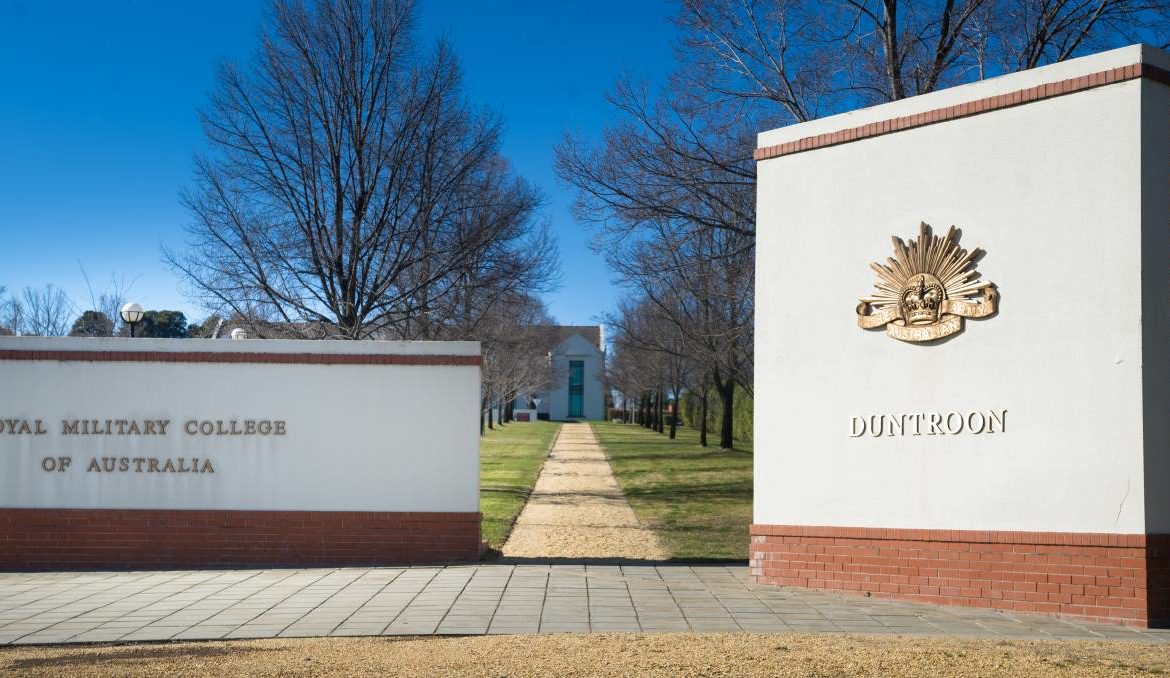news, latest-news, Defence, Angus Campbell, sexual abuse
Men named in connection with a gang rape at Duntroon around 15 years ago are likely still working for the organisation in Canberra, a researcher says. The warning comes as Defence Force chief Angus Campbell prepares to appear at Senate estimates on Wednesday following outcry over his advice to cadets to be aware of the “Four As” – attractive, alcohol, after midnight and alone – to avoid becoming prey to sexual predators. Flinders University associate professor Ben Wadham said gender-based violence was an inherent part of the military institution. Professor Wadham said developing the capacity for violence within the military clearly had desirable outcomes in an operational context. A veteran himself, Professor Wadham is the director of Open Door, a research institute that focuses on the wellbeing of serving personnel and veterans. For a current investigation into institutional abuse in the ADF, Professor Wadham has interviewed 80 survivors, including three women who report being stalked, harassed and raped in Canberra while training and working at the Royal Military College in Duntroon and Campbell Park offices from 2005 onwards. Professor Wadham said there was reason to believe perpetrators of sexual violence, including men responsible for gang rape at Duntroon who were named in the 2011 DLA Piper Review, were still serving members of the Defence Force. He said men accused of rape whose names were withheld from the public would now be in their 50s and still before retirement age. He added that he had received no positive feedback from victims regarding their experiences with Defence’s sexual misconduct management office, established in 2013 in response to abuse highlighted in the DLA Piper Review. “It’s meant to provide an avenue outside of the chain of command, but all reports I’ve had is that it doesn’t feel like a safe and transparent kind of environment,” he said. READ MORE: Professor Wadham said Defence tended to tread a well-worn path when it came to dealing with sexual abuse. He said the routine typically went: incident, media attention leading to scandal, inquiry and then an administrative response rather than a cultural one. “Often recommendations don’t get met, and not lots of change happens,” he said. “Civil society has tried to reign that civic machinery around the safety of women in Defence, but Defence has a culture of scepticism around civilians and their ways of doing things so it’s taken on begrudgingly.” Professor Wadham said perpetrators tended to take advantage of service personnel in lower positions, and often abuse occurred off-base – causing Defence to express reluctance to investigate. “There are cases when prescribed offences under Commonwealth law [that] should be reported to police are not; Defence handles them in-house,” he said. Professor Wadham said often the reporting process within the ADF had the effect of worsening the trauma for the victim. “Often when the woman or the victim reports the assault to someone in authority they shoot the messenger,” he said. “It’s a secondary form of violence, an administrative form of violence.” Professor Wadham said it was commonplace for paperwork to get lost, for reports to not happen and for victims to get posted with the perpetrators. “There’s just a real lack of duty of care and diligence,” he said. “In many cases you think it’d be almost malicious and an attempt to just get somebody out because they’re [seen] to be a sort of virus in the institution.” READ MORE: Professor Wadham said he thought Defence had mostly done the right things when it came to trying to address the problem of sexual abuse, but when dealing with an institution which continued to commend masculinity and violence change was unlikely to occur. “The chairs have been moved around but the room has stayed the same,” Professor Wadham said. “The military is an institution of and for violence, it’s male-dominated and men benefit from the privilege of being in that group. “Therefore, when abuse is happening it means some men aren’t speaking up and some men are continuing to be complicit in that behaviour.” Our journalists work hard to provide local, up-to-date news to the community. This is how you can continue to access our trusted content:
/images/transform/v1/crop/frm/fdcx/doc76r42iexhzoa95e8h5j.jpg/r203_0_3897_2087_w1200_h678_fmax.jpg
Men named in connection with a gang rape at Duntroon around 15 years ago are likely still working for the organisation in Canberra, a researcher says.
The warning comes as Defence Force chief Angus Campbell prepares to appear at Senate estimates on Wednesday following outcry over his advice to cadets to be aware of the “Four As” – attractive, alcohol, after midnight and alone – to avoid becoming prey to sexual predators.
Flinders University associate professor Ben Wadham said gender-based violence was an inherent part of the military institution.
Professor Wadham said developing the capacity for violence within the military clearly had desirable outcomes in an operational context.
A veteran himself, Professor Wadham is the director of Open Door, a research institute that focuses on the wellbeing of serving personnel and veterans.
For a current investigation into institutional abuse in the ADF, Professor Wadham has interviewed 80 survivors, including three women who report being stalked, harassed and raped in Canberra while training and working at the Royal Military College in Duntroon and Campbell Park offices from 2005 onwards.
Professor Wadham said there was reason to believe perpetrators of sexual violence, including men responsible for gang rape at Duntroon who were named in the 2011 DLA Piper Review, were still serving members of the Defence Force.
He said men accused of rape whose names were withheld from the public would now be in their 50s and still before retirement age.
He added that he had received no positive feedback from victims regarding their experiences with Defence’s sexual misconduct management office, established in 2013 in response to abuse highlighted in the DLA Piper Review.
“It’s meant to provide an avenue outside of the chain of command, but all reports I’ve had is that it doesn’t feel like a safe and transparent kind of environment,” he said.
Professor Wadham said Defence tended to tread a well-worn path when it came to dealing with sexual abuse.
He said the routine typically went: incident, media attention leading to scandal, inquiry and then an administrative response rather than a cultural one.
“Often recommendations don’t get met, and not lots of change happens,” he said.
“Civil society has tried to reign that civic machinery around the safety of women in Defence, but Defence has a culture of scepticism around civilians and their ways of doing things so it’s taken on begrudgingly.”
Professor Wadham said perpetrators tended to take advantage of service personnel in lower positions, and often abuse occurred off-base – causing Defence to express reluctance to investigate.
“There are cases when prescribed offences under Commonwealth law [that] should be reported to police are not; Defence handles them in-house,” he said.
Professor Wadham said often the reporting process within the ADF had the effect of worsening the trauma for the victim.
“Often when the woman or the victim reports the assault to someone in authority they shoot the messenger,” he said.
“It’s a secondary form of violence, an administrative form of violence.”
Professor Wadham said it was commonplace for paperwork to get lost, for reports to not happen and for victims to get posted with the perpetrators.
“There’s just a real lack of duty of care and diligence,” he said.
“In many cases you think it’d be almost malicious and an attempt to just get somebody out because they’re [seen] to be a sort of virus in the institution.”
Professor Wadham said he thought Defence had mostly done the right things when it came to trying to address the problem of sexual abuse, but when dealing with an institution which continued to commend masculinity and violence change was unlikely to occur.
“The chairs have been moved around but the room has stayed the same,” Professor Wadham said.
“The military is an institution of and for violence, it’s male-dominated and men benefit from the privilege of being in that group.
“Therefore, when abuse is happening it means some men aren’t speaking up and some men are continuing to be complicit in that behaviour.”
- Lifeline Australia: 13 11 14
- Open Arms: 1800 011 046
Our journalists work hard to provide local, up-to-date news to the community. This is how you can continue to access our trusted content:
The Royal Military College of Australia, Duntroon. Picture: Elesa Kurtz







